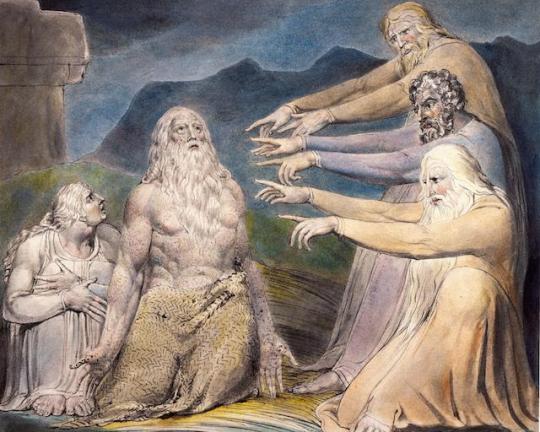#terminum art
Text

A few silly boys and a few silly head canons. Playing around with the weird design for Shockwave's mouth and how it translates to Longarm (He gets a horrible tongue and nasty teeth). And Some bird-like head movements for Shockwave when he's thinking.
#tfa#transformers animated#shockwave#tfa shockwave#longarm#longarm prime#tfa longarm#terminum art#art#fanart#maccadam#transformers
1K notes
·
View notes
Text
partir
Portes d’Orient.
Il me fallait partir.
Mes tombes étaient encore fraîches, je respirais à plein nez l'humus funéraire et sentimental. Septembre. L'encens rustique des feux de feuilles de platane montait dans le ciel pour me dire qu'il était temps de sacrifier à mes morts.
Il me fallut partir vers l'est naturellement puisqu'à Marseille s'ouvre la Porte d'Orient, porte béant sur le vide du cielet de la mer, une arche de granite gris proportionnée comme un monument aux morts qu’elle est, “Aux héros des armées d’Orient et des terres lointaines“. Un architecte se rend-il compte de sa part de responsabilité dans les rêves des petits garçons ? Comme les religieux des écoles avec leurs mots d’amour, de pureté, d’absolu, avec leur robe et leurs grands pieds nus ? Quand ils n’ont pas affaire aux épais philistins, fils de philistins et pères de futurs crétins, ils mettent une graine de folie au cœur des enfants, ils leur ouvrent des portes pour s’enfuir du réel qui les blesse, ils leur donnent le souverain vulnéraire de la sublimation. Sublime Porte par laquelle la réalité se transmue en son contraire, l’échec en réussite et le malheur en victoire sur le malheur. L’arche de granite ouvre cet orient-là. Qu’allais-je y chercher ? Rien que je n’avais déjà trouvé, bien sûr. Je ne chercherais rien ?
Je me rappelais une autre porte, bien modeste celle-là, sur un sommet arrondi des Apennins. Une barrière qui ne barrait plus grand-chose partait d’une ferme et se terminait en plein milieu de la rase et jaune prairie par une porte de bois et de fil de fer barbelé, absurde de tenter de fermer l’espace si largement ouvert au-delà d’elle. Et pourtant, pour m'indiquer mon chemin, une vieille me fit passer par cette porte, lui conservant sa dignité de seuil symbolique malgré l’irréalité de son office, véritable paillasson des Guermantes qui, encore qu'idéal, n'en semblait que plus réel au Narrateur, compagnon de mes voyages. On ne passe pas par le vide mais en suivant des chemins reconnus par les hommes depuis longtemps, même effacés sur le palimpseste du monde.
Tout a un sens qui dépasse le réel sensible. Derrière les bosquets des jardins nocturnes ne se cachent pas que les faunes de mes désirs, blanches poitrines sur cuisses velues brandissant la sombre épine que je baiserai, cuisses d'éphèbe ému que je cueillerai dans une roseraie aussi hérissée que la couronne d'épines. Je savais aussi, depuis la psalmodie du Cantique de Daniel aux vêpres, que la nature entière est une louange. Nul discours moralisateur, nulle subtilité raisonneuse dans la pénombre de la nef à la tombée du soir, une simple psalmodie qui se gonfle aux dimensions du monde décrit et glorifié.
“Benedicite omnia opera Domini Domino ;
“Laudate et superexaltate eum in sæcula.
“Benedicite sol et luna ... rores et pruina ... glacies et nives ... maria et flumina ... bestiæ et pecora ... filii hominum ... fontes ...“.
“Bénissez le Seigneur, toutes ses œuvres.
“Louez-Le, chantez-Le pour les siècles.
“Soleil et lune… pluie et rosée… glaces et neiges… fleuves et mers… Fauves et troupeaux… enfants des hommes… fontaines
“Chantez une hymne au Seigneur“.
Le sang d’Alexandre de Yougoslavie a baptisé cette porte d’Orient en 1934 sous les balles d’un Oustachi. Son architecte, Gaston Castel l’a faite figurer dans les bas-reliefs de son monument au roi Alexandre et au président Barthou à la préfecture, non que le roi y fût passé mais il avait voulu honorer le rôle de Marseille comme port des armées d’Orient qui s’y embarquaient pour les Dardanelles où sa propre armée combattait. Quelle irruption de l’histoire héroïque, un roi “preux“ assassiné ici, en face du Grand Glacier et de son chocolat viennois, et un ministre de la République s’en allant, tel le roi Renaud ”tenant ses tripes dans ses mains”, mourir à l’Hôtel Dieu ! Cette histoire est belle qui met de nobles mots sur des réalités prosaïques et rudes.
Les bas-reliefs et la statuaire de la Porte d’Orient sont du plus bel Art Déco, comme les autres réalisations de son architecte. Ce qui cheville encore plus mes rêves de petit garçon, j'y retrouve le style de ses façades des grandes compagnies maritimes le long de la Joliette, son monument sur la Plaine qui évoque le souvenir du premier vol en ballon à travers la Méditerranée en 1886, à côté du grand bassin rond dit “le tour du monde“ où les enfants pouvaient s'embarquer pour faire ce petit tour dans un paquebot miniature. Mes images de bonheur seront souvent de ce même Art Déco, - soirées tièdes passées sur des balcons à gros pilastres de béton en haut des immeubles, d'un côté c'est la rumeur de la ville et de l'autre Españade Chabrier,”wagnérien de table d’hôtes” d’après cette rosse de Willy, qui s'échappe des croisées où s’alanguissent des voilages, - générosité du père qui prête à son fils sa “superbe auto“ pour un tour d'Europe après son succès au bachot, - parce que ces rêves sont forgés avec le matériau des récits mythiques de leur propre jeunesse que font les anciens à table ou au salon autour des cartes du bridge et des tasses à thé.
Autres portes pour m'éloigner de mon quotidien et m'échapper de l'enveloppe de mon corps. J'y retrouve l'oncle capitaine au long cours sur la ligne d’Orient. Dans son salon pendouillaient aux murs de grandes croûtes dans ce même style des années 30, souvenirs d’escales, lourdes jonques mouillant devant les pains de sucre de la baie d'Along dans un camaïeu d'ocres grumeleux. L’oncle et la tante étaient eux-mêmes très Art Déco, comme leurs navires, Art-Paquebot dit-on, joues, lunettes et bedaine jouant des courbes et contre courbes comme une ferronnerie de transatlantique, au point que dans ma tête leurs voix et leurs inflexions grasseyantes et tonitruantes étaient celles mêmes de ces années-là. Leurs manières venaient de leur propre enfance, une mondanité et des vulgarités estampillées. Lors des réunions familiales où, enfants, nous n’avions droit qu’au pouf dans le coin du salon et à une citronnade tellement diluée que du citron il ne restait que l’esprit, terribles adultes indifférents et jacassant, que vous nous avez fourni de rêves. C’est tout ce que l'on vous demandait, nous les “mon p'tit“, les “mon grand“ et les “mignonne“ !
Marseille ne laisse pas tranquilles mes rêveries. Elle redonde d'escalier en escalier : celui de la gare avec ses matrones en tenues coloniales légères, celui des Beaux-Arts avec ses fresques de Puvis de Chavannes, comme autant de rappels de cet Orient coloré, lointain et proche, en tout cas familier, opposé à la calme, blanche et morne colonie grecque. Et il me suffisait de descendre par les ruelles du quartier Belsunce pour tomber de vieilles gourgandines éclaboussées de rouge à lèvre et ridées de mascara en vieux Arabes accroupis, un Coran ouvert sur les genoux à la recherche de quelque divination, une ambiance de casbah à la Pépé le Moko. Nouveau missionnaire, le père censeur de l'école, aux allures d’un Edward G Robinson, y allait exercer son apostolat en motocyclette, robe de bure et ceinturons de cuir fauve, et en revenait comme de chez “les nègres“. L'Aventure à la porte. Suis-je le seul enfant à avoir rêvé sur les plaques en fonte des égouts marquées du sceau de Pont-à-Mousson, me laissant entrevoir des fleuves souterrains rejoignant les tropiques ?
La Porte d’Orient mène droit au Gateway of India de Bombay, au bout d’une route qui, pour immatérielle et libre qu'elle paraisse, n'a rien d'aléatoire. Le capitaine continue de faire le point à la main sur de grandes cartes marines, au milieu des écrans qui donnent pourtant la position en permanence. Au plein milieu de l'immensité courbe de l'océan, les bateaux suivent comme uneroute de campagne bornée par des fossés ou des haies invisibles. Paul Morand parlera de “chemin vicinal“ pour évoquer cette même route des Indes dans les années trente, croyant faire un mot mais disant une réalité bien plus profonde, ce qui est le propre des bonsmots. Le navire révèle cette route par son sillage qui coupe la surface lisse de la mer derrière lui. Devant lui, c'est l'infini des possibles indifférenciés, derrière le choix a été fait définitivement.
Sur la route des Indes, je vais essayer de réapprendre la géographie de ma vie déboussolée. Mes méridiens sentimentaux vont devoir s'aligner sur ceux des cartes marines en me gardant des gueules béantes qui ouvrent sur les ténèbres et les régions infernales au milieu des océans comme le seront les nuits agitées de tous mes fantômes. Mon dernier repas sur le port avait été placé malgré moi sous le signe de la mort successive de mes familiers. Pourquoi avait-on voulu m'imposer ces souvenirs lors de ce repas pris dans une ruelle du port ? C'était anticiper, sans le savoir, ce que seraient mes propres rendez-vous nocturnes indiens avec mes morts et mes désespoirs. Je partais creuser mes tombes dans un caveau vaste comme les Indes mais nul bûcher à Bénarès ne consumerait mes deuils. La solitude de la pérégrination, la perte des repères quotidiens, la nécessité d'inventer en permanence son chemin, tout va contribuer à désarmer mon esprit et à ouvrir de grandes brèches dans les défenses de mon âme. Je vais être la proie des noctium phantasmata, images diaboliques que fait naître la nuit et dont on implore Dieu de nous garder avant que ne disparaisse la lumière, “Te lucis ante terminum“. Leur nom est légion à ces démons et ma nuit sera longue jusqu'à l'aube de mon retour.
0 notes
Photo

BOOK OF JOB - From The Douay-Rheims Bible - Latin Vulgate
Chapter 26
The Book of Job shows how human affairs are ruled by Divine Providence using probable arguments.
"Although you hide these things in your heart, I know that you still remember everything." - (Job speaking to God)
***
INTRODUCTION.
This Book takes its name from the holy man, of whom it treats; who, according to the more probable opinion, was of the race of Esau, and the same as Jobab, king of Edom, mentioned Gen. xxxvi. 33. It is uncertain who was the writer of it. Some attribute it to Job himself; others to Moses, or some one of the prophets. In the Hebrew it is written in verse, from the beginning of the third chapter to the forty-second chapter. Ch. --- The beginning and conclusion are historical, and in prose. Some have divided this work into a kind of tragedy, the first act extending to C. xv., the second to C. xxii., the third to C. xxxviii., where God appears, and the plot is unfolded. They suppose that the sentiments of the speakers are expressed, though not their own words. This may be very probable: but the opinion of those who look upon the work as a mere allegory, must be rejected with horror. The sacred writers speak of Job as of a personage who had really existed, (C.) and set the most noble pattern of virtue, and particularly of patience. Tob. ii. 12. Ezec. xiv. 14. Jam. v. 11. Philo and Josephus pass over this history, as they do those of Tobias, Judith, &c. H. --- The time when Job lived is not clearly ascertained. Some have supposed (C.) that he was a contemporary with Esther; (D. Thalmud) on which supposition, the work is here placed in its chronological order. But Job more probably live during the period when the Hebrews groaned under the Egyptian bondage, (H.) or sojourned in the wilderness. Num. xiv. 9. The Syrians place the book at the head of the Scriptures. C. --- Its situation has often varied, and is of no great importance. The subject which is here treated, is of far more; as it is intended to shew that the wicked sometimes prosper, while the good are afflicted. H. --- This had seldom been witnessed before the days of Abraham: but as God had now selected his family to be witnesses and guardians of religion, a new order of things was beginning to appear. This greatly perplexed Job himself; who, therefore, confesses that he had not sufficiently understood the ways of God, till he had deigned to explain them in the parable of the two great beasts. C. xlii. 3. We cannot condemn the sentiments expressed by Job, since God has declared that they were right, (ib. v. 8) and reprimands Elihu, (C. xxxviii. 2.) and the other three friends of Job, for maintaining a false opinion, though, from the history of past times, they had judge it to be true. This remark may excupate them from the stain of wilful lying, and vain declamation. Houbigant. --- However, as they assert what was false, their words of themselves are of no authority; and they are even considered as the forerunners of heretics. S. Greg. S. Aug. &c. T. --- Job refutes them by sound logic. S. Jerom. --- We may discover in this book the sum of Christian morality, (W.) for which purpose it has been chiefly explained by S. Gregory. The style is very poetical, (H.) though at the same time simple, like that of Moses. D. --- It is interspersed with many Arabic and Chaldaic idioms; (S. Jer.) whence some have concluded, that it was written originally by Job and his friends (H.) in Arabic, and translated into Heb. by Moses, for the consolation of his brethren. W. --- The Heb. text is in many places incorrect; (Houbig.) and the Sept. seem to have omitted several verses. Orig. --- S. Jerom says almost eight hundred, (C.) each consisting of about six words. H. --- Shultens, in 1747, expressed his dissatisfaction with the labours of all preceding commentators. To explain this book may not therefore be an easy task: but we must be as short as possible. H. --- Those who desire farther information, may consult Pineda, (W.) whose voluminous work, in two folios, will nearly (H.) give all necessary information. C.
The additional Notes in this Edition of the New Testament will be marked with the letter A. Such as are taken from various Interpreters and Commentators, will be marked as in the Old Testament. B. Bristow, C. Calmet, Ch. Challoner, D. Du Hamel, E. Estius, J. Jansenius, M. Menochius, Po. Polus, P. Pastorini, T. Tirinus, V. Bible de Vence, W. Worthington, Wi. Witham. — The names of other authors, who may be occasionally consulted, will be given at full length.
Verses are in English and Latin.
HAYDOCK CATHOLIC BIBLE COMMENTARY
This Catholic commentary on the Old Testament, following the Douay-Rheims Bible text, was originally compiled by Catholic priest and biblical scholar Rev. George Leo Haydock (1774-1849). This transcription is based on Haydock's notes as they appear in the 1859 edition of Haydock's Catholic Family Bible and Commentary printed by Edward Dunigan and Brother, New York, New York.
TRANSCRIBER'S NOTES
Changes made to the original text for this transcription include the following:
Greek letters. The original text sometimes includes Greek expressions spelled out in Greek letters. In this transcription, those expressions have been transliterated from Greek letters to English letters, put in italics, and underlined. The following substitution scheme has been used: A for Alpha; B for Beta; G for Gamma; D for Delta; E for Epsilon; Z for Zeta; E for Eta; Th for Theta; I for Iota; K for Kappa; L for Lamda; M for Mu; N for Nu; X for Xi; O for Omicron; P for Pi; R for Rho; S for Sigma; T for Tau; U for Upsilon; Ph for Phi; Ch for Chi; Ps for Psi; O for Omega. For example, where the name, Jesus, is spelled out in the original text in Greek letters, Iota-eta-sigma-omicron-upsilon-sigma, it is transliterated in this transcription as, Iesous. Greek diacritical marks have not been represented in this transcription.
Footnotes. The original text indicates footnotes with special characters, including the astrisk (*) and printers' marks, such as the dagger mark, the double dagger mark, the section mark, the parallels mark, and the paragraph mark. In this transcription all these special characters have been replaced by numbers in square brackets, such as [1], [2], [3], etc.
Accent marks. The original text contains some English letters represented with accent marks. In this transcription, those letters have been rendered in this transcription without their accent marks.
Other special characters.
Solid horizontal lines of various lengths that appear in the original text have been represented as a series of consecutive hyphens of approximately the same length, such as ---.
Ligatures, single characters containing two letters united, in the original text in some Latin expressions have been represented in this transcription as separate letters. The ligature formed by uniting A and E is represented as Ae, that of a and e as ae, that of O and E as Oe, and that of o and e as oe.
Monetary sums in the original text represented with a preceding British pound sterling symbol (a stylized L, transected by a short horizontal line) are represented in this transcription with a following pound symbol, l.
The half symbol (1/2) and three-quarters symbol (3/4) in the original text have been represented in this transcription with their decimal equivalent, (.5) and (.75) respectively.
Unreadable text. Places where the transcriber's copy of the original text is unreadable have been indicated in this transcription by an empty set of square brackets, [].
Chapter 26
Job declares his sentiments of the wisdom and power of God.
[1] Then Job answered, and said:
Respondens autem Job dixit :
[2] Whose helper art thou? is it of him that is weak? and dost thou hold up the arm of him that has no strength?
Cujus adjutor es? numquid imbecillis? et sustentas brachium ejus qui non est fortis?
[3] To whom hast thou given counsel? perhaps to him that hath no wisdom, and thou hast shewn thy very great prudence.
Cui dedisti consilium? forsitan illi qui non habet sapientiam, et prudentiam tuam ostendisti plurimam.
[4] Whom hast thou desired to teach? was it not him that made life?
Quem docere voluisti? nonne eum qui fecit spiramentum?
[5] Behold the giants groan under the waters, and they that dwell with them.
Ecce gigantes gemunt sub aquis, et qui habitant cum eis.
[6] Hell is naked before him, and there is no covering for destruction.
Nudus est infernus coram illo, et nullum est operimentum perditioni.
[7] He stretched out the north over the empty space, and hangeth the earth upon nothing.
Qui extendit aquilonem super vacuum, et appendit terram super nihilum.
[8] He bindeth up the waters in his clouds, so that they break not out and fall down together.
Qui ligat aquas in nubibus suis, ut non erumpant pariter deorsum.
[9] He withholdeth the face of his throne, and spreadeth his cloud over it.
Qui tenet vultum solii sui, et expandit super illud nebulam suam.
[10] He hath set bounds about the waters, till light and darkness come to an end.
Terminum circumdedit aquis, usque dum finiantur lux et tenebrae.
[11] The pillars of heaven tremble, and dread at his beck.
Columnae caeli contremiscunt, et pavent ad nutum ejus.
[12] By his power the seas are suddenly gathered together, and his wisdom has struck the proud one.
In fortitudine illius repente maria congregata sunt, et prudentia ejus percussit superbum.
[13] His spirit hath adorned the heavens, and his obstetric hand brought forth the winding serpent.
Spiritus ejus ornavit caelos, et obstetricante manu ejus, eductus est coluber tortuosus.
[14] Lo, these things are said in part of his ways: and seeing we have heard scarce a little drop of his word, who shall be able to behold the thunder of his greatness?
Ecce haec ex parte dicta sunt viarum ejus : et cum vix parvam stillam sermonis ejus audierimus, quis poterit tonitruum magnitudinis illius intueri?
Commentary:
Ver. 4. Life. Sept. also seem to understand this of God. C. --- Job does not blame his friends for undertaking to approve the ways of Providence, but for condemning himself (S. Chrys.) rashly, (H.) and, with an air of haughtiness, endeavouring to restrain him from pleading his cause before the divine tribunal. M. --- Heb. "Whose spirit came from thee?" Prot. (H.) Did I receive my life, or do I seek advice from thee? C. --- God stood in no need of Baldad's wisdom (W.) no more than Job. H.
Ver. 5. With them. The less and greater fishes, (M.) or rather the giants and others who were buried in the waters of the deluge, and are confined in the dungeons of hell. The poets speak in the same manner.
"Hic genus antiquum terræ, Titania pubes,
Fulmine dejecti fundo voluntur in imo.
Aliis sub gurgite vasto,
Infectum eluitur scelus aut exuritur igni." Æn. vi.
--- Homer (Iliad viii.) and Hesiod (Theog.) place the giants at the extremity of the earth, in the utmost darkness. See also Prov. ix. 18. Isai. xiv. 9. C.
Ver. 6. Hell. The grave. --- Destruction. Heb. abaddon. H. --- S. John (Apoc. ix. 11.) styles the bottomless abyss; (C.) or its angel, (H.) Abaddon, or Apollyon. It may here be called destruction, (C.) as all its victims are lost for ever to every thing that is good. The obscurity of the grave, and even that of hell, can hide nothing from God.
Ver. 7. North pole, which alone was visible in Idumea, and continued unmoved, while all the stars performed their revolutions. C. --- Nothing. Terra, pilæ similis, nullo fulcimine nixa. Ovid, Fast. vi. C. --- All tends to the centre, (M.) by the laws of attraction. Newton, &c. H.
Ver. 8. Clouds, as in a vessel or garment. Prov. xxx. 4.
Ver. 9. Over it. The firmament, with all its beauty, is but like a cloud, to conceal from our feeble eyes the splendor of God's throne.
Ver. 10. End. Till the end of the world, the ocean will respect these limits. H. --- The ancients looked upon it as a continual miracle that the world was not deluged, as the waters are higher than the earth. Jer. v. 22. Amos v. 8. S. Bas. and S. Amb. Hexem. Cicero, Nat. ii. --- Philosophers have explained this phenomenon. But it is still certain that the power and wisdom of God preserve the equilibrium, without which all would return to the ancient chaos. C.
Ver. 11. Heaven. The mountains are so styled by Pindar; and the poets represent them supporting the heavens. Totum ferre potest humeris minitantibus orbem. Petron. --- Yet others understand that power which keeps all things together, (C.) or the angels, to whose rule the ancients attributed the celestial bodies. S. Greg. Ven. Bede, &c.
Ver. 12. Together, at the beginning. Gen. i. 9. Heb. "By his strength he has divided the sea; and by his wisdom he has pierced the proud, or Egypt." Rahab, (H.) or Rachab, is often put for Egypt; (Ps. lxxxviii. 11.) and all would naturally have concluded that the fall of Pharao was pointed at, if it had not been supposed that Job lived before that event. That is, however, dubious. Isaias (li. 9.) uses the same terms in describing the fall of this tyrant. C. --- Yet the Sept. translate, "the whale," (H.) or some sea monster, which God holds in subjection, (Pineda) like the weakest creature. H. --- The foaming billows (M.) are likewise subject to his control. H.
Ver. 13. Heavens, with stars, &c. Ps. xxxii. 6. Wisd. i. 7. God also sends winds to disperse the clouds, that the heavens may appear. C. --- Artful, (obstetricante) "being the midwife." The least things are ruled by Providence. W. --- Serpent; a constellation, lightning, the devil, or rather the leviathan. Isai. xxvii. 1. Drusius. C. --- Sept. "by his decree, he killed the apostate dragon." H. - But there is no need of having recourse to allegory. C.
Ver. 14. Drop. This comparison is often applied to speech. Deut. xxxii. 2. Isai. lv. 10. If the little that we know of God's works give us such an exalted idea of his greatness, what should we think if we could fully comprehend his mysteries? C.
0 notes
Text

Oh boy I sure do love this ship and hope nothing terrible happens.
#tfa#transformers#shockwave#tfa shockwave#blurr#tfa blurr#shockblurr#maccadam#terminum art#what do you mean i'm 16 years to late for this fandom
1K notes
·
View notes
Text

Some stuff from a sparkeater AU with @bardocklives, where said sparkeaters are more akin to vampires than mindless creatures. Shockwave and Longarm are also separate entities because I am a big sucker for those AUs and Longarm is a helpless loser.
Also Shockwave's nasty weird mouth. (How else is he going to eat sparks)
#tfa#transformers animated#shockwave#tfa shockwave#blurr#tfa blurr#longarm#longarm prime#tfa longarm#sparkeater au#shockblurr#i guess#terminum art#art#fanart#maccadam#you can tell who my blorbo is#Shockwave looks after them both
499 notes
·
View notes
Text

This is a bit of a mood lately
#tfa#transformers animated#transformers#tfa longarm#longarm#longarm prime#tfa shockwave#shockwave#tfa blurr#blurr#fanart#art#terminum art#maccadam
509 notes
·
View notes
Text

Another AU, this time with Shockwave having been taken over by a nanorobotic swarm, giving him super goo powers though at the same time having completely ravaged his body.
#tfa#transformers animated#transformers#shockwave#tfa shockwave#terminum art#art#fanart#maccadam#he will schlorp your stuff
253 notes
·
View notes
Text

New obsession acquired: Murder deer.
#shockwave#tfa shockwave#tfa#transformers#transformers animated#maccadam#terminum art#wip#illustration#fanart
456 notes
·
View notes
Text

#tfa#transformers animated#tfa longarm#longarm#longarm prime#tfa shockwave#shockwave#illustration#fanart#art#terminum art#maccadam
395 notes
·
View notes
Text

Pov: You have very little screen time and run into Longarm while he's alone.
Original
#tfa#transformers animated#transformers#tfa longarm#longarm#longarm prime#tfa shockwave#shockwave#fanart#art#terminum art#maccadam#I will make good art again one day#i promise
113 notes
·
View notes